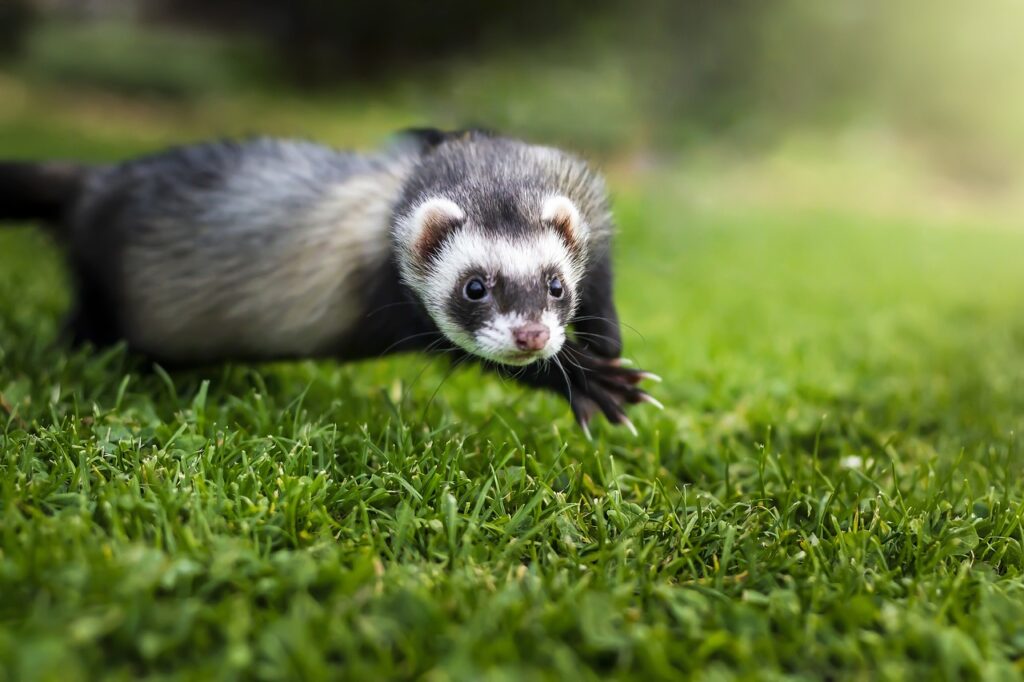Can Ferrets Eat Sardines?
Ferrets are carnivorous animals that require a high-protein diet to thrive. In the wild, they would consume small mammals and birds, which are packed with essential nutrients. Sardines, being a fatty fish rich in protein, make an excellent choice for ferrets.
The Advantages of Sardines for Ferrets
Sardines offer several health benefits for ferrets due to their nutritional composition. They are an excellent source of omega‑3 fatty acids, which contribute to a shiny coat and healthy skin. Omega‑3 fatty acids also have anti-inflammatory properties, promoting the overall well-being of your furry friend. Additionally, sardines are rich in taurine, an essential amino acid that is crucial for the cardiovascular health of ferrets.
Furthermore, sardines are packed with vitamins such as vitamin D, which aids in calcium absorption and supports the development of strong bones and teeth. They also contain vitamin B12, which is essential for nerve function and the production of red blood cells in ferrets.
Guidelines for Feeding Sardines to Ferrets
While sardines offer numerous advantages for ferrets, it is important to feed them in moderation. The recommended serving size for ferrets is approximately one small sardine per week. This ensures that your pet receives the necessary nutrients from sardines without exceeding the daily caloric intake. Remember, an excessive amount of sardines can lead to weight gain, which may predispose ferrets to health issues such as obesity.
It is also crucial to choose plain sardines without any additional seasonings or additives. Avoid sardines packed in oil, as the added oils can be harmful to your ferret’s digestive system. Opt for plain sardines packed in water instead, ensuring that no salt or other flavorings are included.
Potential Cautions When Feeding Sardines to Ferrets
Although sardines are generally safe for ferrets, there are a few precautions to consider. Firstly, some ferrets may have allergies or sensitivities to certain types of fish. Therefore, it is important to introduce sardines gradually into their diet and monitor their response. If you notice any adverse reactions such as vomiting, diarrhea, or skin irritations, discontinue feeding sardines immediately and consult a veterinarian.
Secondly, as mentioned earlier, it is crucial to feed sardines in moderation. Overfeeding can lead to weight gain and potential health issues. Always remember that a balanced diet is key to maintaining your ferret’s overall health and well-being.
Can Other Pets Also Enjoy Sardines?
Other pets, such as cats and dogs, can safely enjoy sardines as well. Cats, in particular, can benefit from the omega‑3 fatty acids and taurine present in sardines. However, it is essential to feed sardines to cats and dogs in appropriate quantities, considering their unique dietary requirements. Consult with a veterinarian to determine the ideal serving size and frequency for your other furry companions.
Conclusion
In conclusion, sardines can be a nutritious addition to a ferret’s diet. They offer several health benefits, including the provision of omega‑3 fatty acids, taurine, and essential vitamins. However, it is important to feed sardines in moderation and choose plain options without any additional seasonings. As with any new food, closely monitor your ferret’s reaction and consult a veterinarian if any concerns arise. By responsibly incorporating sardines into your ferret’s diet, you can contribute to their overall health and well-being.






